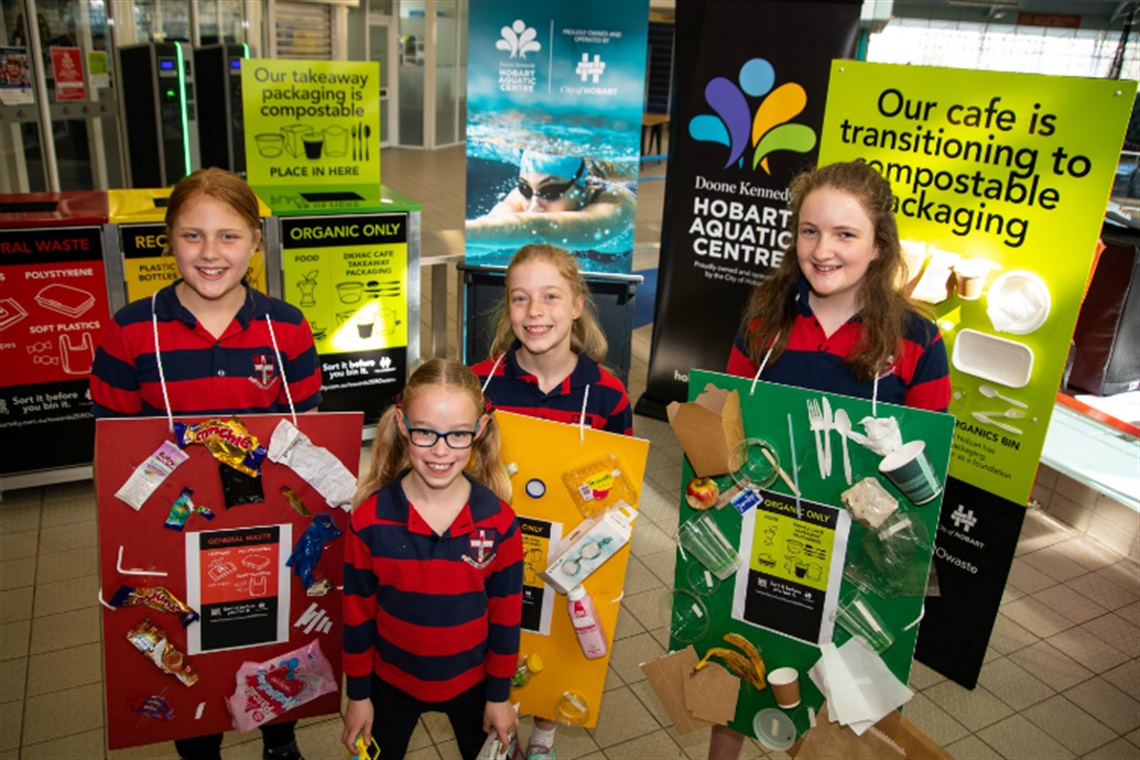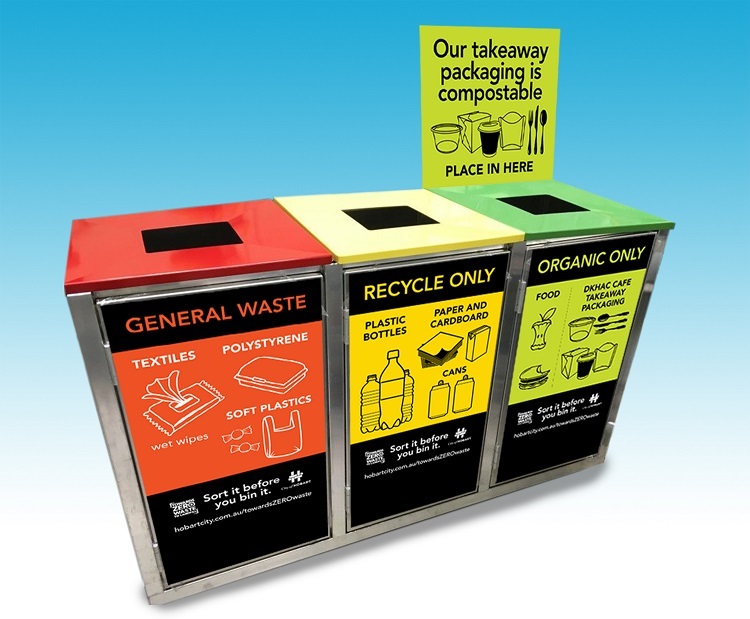Hobart’s Aquatic Centre minimises waste
Published on 04 September 2018

The City of Hobart has implemented a new waste minimisation system at the Doone Kennedy Hobart Aquatic Centre (DKHAC).
As of 4 September 2018 significant changes were made to the Doone Kennedy Hobart Aquatic Centre’s (DKHAC) waste system. These changes included the DKHAC café transitioning to certified compostable takeaway packaging and the introduction of an organic waste stream. The changes will lift the centre’s recovery rate from approximately 30% to 60%.
This process has been a year in the making, beginning with a waste stream analysis and a review of café packaging in 2017. From these enquiries the project team learnt that a significant portion of the DKHAC waste stream was organic material and saw the potential to substitute some café packaging with compostable alternatives.
A Waste Minimisation Plan was formulated, which proposed that an organics stream be added and six packaging types be targeted for replacement: plastic cutlery, noodle boxes, plastic straws, sandwich wedges, takeaway plastic containers, and chip boxes. Permitted compostable packaging came in the form of bioplastics, bagasse, paper, cardboard and wood.
Compostable bioplastic packaging was identified using the US, the Australian and EU industrial composting standards of ASTM D6400, AS4736, and EN13432. These certifications provide surety that the packaging will compost in an Industrial Composting facility, achieving at least 60% decomposition in 180 days. To meet these conditions the composting facility is required to operate above 55°C, a prerequisite that is met by McRobies Composting Facility.

Compostable packaging trials were carried out in late 2017 on various compostable products, testing the rate of disintegration in the McRobies Composting Facility. The products tested included bioplastic cutlery, coffee cups, wooden cutlery, paper napkins, bagasse containers, and a bioplastic bag. Nearly all of the results met the composting benchmarks, with only wooden cutlery showing slower disintegration rates than desired.
The next time you’re visiting DKHAC, remember that the introduction of an organics stream results in different disposal rules. All food waste and certified compostable packaging is placed in the organics bin, which is subsequently sent to our McRobies Composting Facility. This only leaves softs plastic packaging, textiles and polystyrene in the waste stream. The recycling stream remains unchanged (plastic bottles, metal cans, tetrapacks, paper & cardboard) and is sent to our recycling facility in Derwent Park.
The project is part of the City’s Waste Management Strategy 2015-2030 which aims to achieve zero waste to the Hobart Landfill by 2030 through over 90 actions across a range of areas such as organic waste, education and litter.
To learn more about the new waste system, visit the Towards Zero Waste to Landfill page.